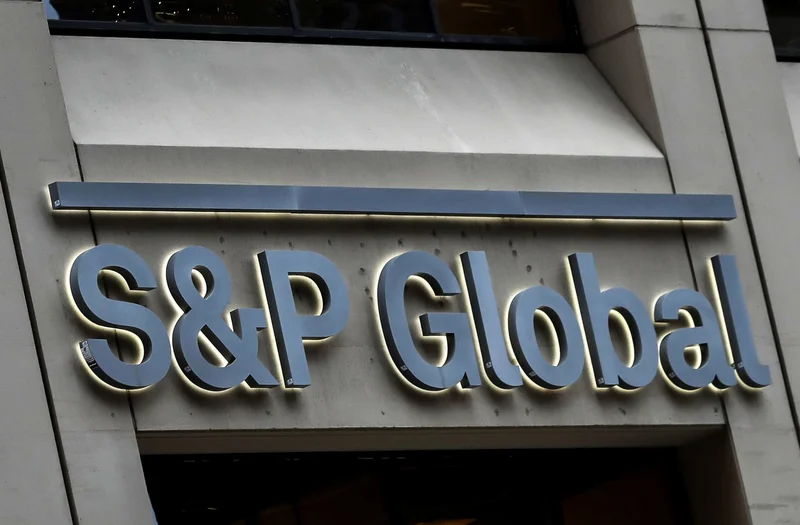The market is hitting all-time highs, but the celebration feels hollow. Her...
2025-10-30 11 s& p 500 futures
The tickers glowed green across every screen in the world on Monday. The S&P 500 rallies 1% to notch first close ever above 6,800 on potential China trade truce: Live updates - CNBC, the Dow and Nasdaq hitting their own dizzying records—it was a cascade of good news so overwhelming it felt like a system glitch. The headlines, of course, all screamed the same simple story: a potential U.S.-China trade truce. President Trump and President Xi are talking, tariffs might be delayed, and Wall Street threw a party.
And yes, that’s true. It’s the simple, clean, and easy explanation.
But I'm telling you, it’s the wrong one.
What we saw on Monday wasn't a sigh of relief. It was a roar of anticipation. To focus only on the trade deal is like marveling at the flicker of a match while ignoring the massive engine it just ignited. For months, even years, we’ve been watching the slow, steady build-up of a new technological foundation for our economy. We’ve seen the breakthroughs in AI, the quiet rewiring of our data infrastructure, the slow march of autonomous systems. And on Monday, the market finally priced it in. The trade deal wasn't the cause; it was simply the catalyst that removed the last bit of static, allowing us all to hear the powerful hum of the future that’s already here.
Let’s be honest, the market is a complex adaptive system—in simpler terms, it’s a giant, decentralized brain trying to predict the future based on millions of inputs. For the past year, that brain has been distracted by a migraine of tariffs, inflation fears, and geopolitical noise. It’s been reactive, jumpy, and short-sighted. We saw this in the strange data coming from firms like Wolfe Research, who noted that even companies crushing their earnings estimates weren’t getting the big stock pops they usually would.
Cynics saw this as a sign of a tired, skeptical market. I see something entirely different. The market wasn’t tired; it was bored. It was bored with yesterday’s metrics. It stopped rewarding incremental, predictable gains because its attention was shifting, searching for something bigger. It was looking for the companies not just optimizing the present, but actively building the next decade.
And on Monday, it found them.

The whispers of a trade truce didn't create new value. They simply cleared away the fog. Suddenly, with the immediate threat of a global economic slowdown seemingly off the table, investors could lift their heads and look at the horizon. And what they saw sent a jolt of electricity through the system. They saw a world where the flow of goods, both physical and digital, could accelerate. And in that world, the companies laying the tracks for that acceleration become exponentially more valuable.
This explains why the rally wasn't just broad; it was specific. It wasn't just a rising tide. It was a geyser erupting from very specific, very important places. And the epicenter wasn't in Washington or Beijing, but in the labs and data centers of Silicon Valley and beyond.
When I saw the news that Qualcomm’s stock had soared 11% to an all-time high, I honestly just sat back in my chair, speechless for a moment. This is the kind of breakthrough that reminds me why I got into this field in the first place. This wasn't just a good day for a chipmaker. This was the market validating a profound paradigm shift. Qualcomm’s new AI chips aren't just about competing with Nvidia; they represent the next great leap in computing—moving artificial intelligence from centralized cloud servers out to the edge, into our phones, our cars, our homes. The speed and scale of what this enables is just staggering—it means the gap between a command and an action, between a question and an answer, is collapsing to zero and this will fundamentally reshape everything from manufacturing to medicine.
Look deeper into the day’s big winners, and you see the same pattern everywhere. You see Palantir hitting a new high after signing a deal with Poland, a clear signal that data analysis is now a cornerstone of national sovereignty. You see Tesla surging, a company that people still mistake for a car manufacturer when it’s truly a robotics and energy company in disguise. You see chipmakers like Broadcom, the companies making the literal neurons of our new global brain, climbing higher.
This moment feels uncannily like the late 1990s. Back then, the world was mesmerized by the flashy new ".com" websites. But the real, lasting value wasn't being created by Pets.com; it was being built by the companies laying thousands of miles of fiber-optic cable and designing the routers that formed the internet's backbone. The websites were the sizzle; the infrastructure was the steak.
Today, the trade deal is the sizzle. The AI infrastructure being built by companies like Qualcomm is the steak. And on Monday, the market finally decided it was hungry.
Of course, with this incredible power comes immense responsibility. As we build these new AI-driven systems, we have to consciously and deliberately build in the guardrails of ethics, privacy, and human oversight. We cannot afford to build a future that is incredibly efficient but devoid of our values. The same tools that can unlock unprecedented prosperity could, if wielded carelessly, create new forms of inequality. What does it mean for society when a handful of companies build the core intelligence that powers everything else? How do we ensure this new world is an equitable one? These aren't side questions; they are central to the mission.
Forget the headlines about trade talks and tariff delays. That’s the weather report. What we should be looking at is the climate change. Monday, October 28, 2025, wasn't just another record-breaking day on Wall Street. It was a declaration. It was the moment the market’s collective consciousness shifted its focus from the problems of today to the architecture of tomorrow. The immense M&A deals in banking and utilities, the talk of a new Fed chair—that’s all just the sound of the old world tidying up its affairs. The real story, the one that truly matters, is being written in silicon and in code. What we just witnessed wasn't a temporary market rally. It was a permanent economic realignment. The starting gun just fired, and the race to build the future is officially on.
Related Articles

The market is hitting all-time highs, but the celebration feels hollow. Her...
2025-10-30 11 s& p 500 futures